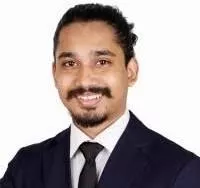- within Intellectual Property topic(s)
- in United States
- with readers working within the Law Firm industries
- within Intellectual Property topic(s)
- with readers working within the Law Firm industries
- within Intellectual Property, Employment and HR and Corporate/Commercial Law topic(s)
- with Inhouse Counsel
Introduction
With great power, comes great responsibility. This saying holds particularly true in the context of AI technology which is indeed a double-edged sword. Nothing as revolutionary as AI technology comes without significant potential for misuse. The present article aims to shed light on the perils of the use of AI and deepfake technology in the context of celebrities, political figures and their personality rights, focusing specifically on how India has risen to the challenge of tackling the problem through judicial precedents despite several lacunae that exist from a statutory perspective.
The term 'deepfake' has been derived from the terms 'deep learning' and 'fake' and is essentially used to describe artificial media created using data manipulation. Recently, the internet has seen a boom in deepfakes created using celebrities' images, voices or both, mainly due to the ease of access to the necessary data in the public domain.
While useful for a variety of purposes (for instance, the resurrection of the late Paul Walker in the movie Fast & Furious 7), deepfakes have the potential to take a dark turn. Examples of misuse include the dissemination of political misinformation during elections, using a celebrity's image to market a product / service they do not endorse, fake political campaigning by celebrities, creating unauthorized music using an artist's voice and can even be taken as far as cybercrime.
Statutory Provisions
Despite the grave potential for misuse that deepfakes pose, it is alarming that Indian regulations are unfortunately silent on the topic and currently lack specific provisions to address the issue. This gap persists, with the exception of a few advisories on the subject issued by the Ministry of Electronics and Information Technology (MeitY) of India in 2023 and 2024 targeted at intermediaries. Recommendations of note include informing users about the kind of content deemed unlawful, identification and removal of content that qualifies as misinformation, enabling victims/users to report violations easily, which should be redressed through the grievance officer, as well embedding data which is the product of artificial creation/generation with metadata so as to permit source-identification in the event such data is misused.
That said, there exist certain 'fringe' provisions which can assist victims in seeking relief against the misuse of various facets of their persona through deepfakes. In such cases, the applicable law would centre around the nature and use of the deepfake generated. Some of the relevant provisions in this regard are discussed below –
- Copyright Act: The deployment of works that have been granted copyright in the creation of deepfakes, would be punishable under Section 51 of The Copyright Act, 1957 ('Copyright Act') of India which prevents the use of protected works without permission of the owner of said copyright. Further, the Copyright Act grants artists the 'Right to Attribution' viz. the right to be credited for, and to claim authorship of, their performances under Section 38 of the Copyright Act. Moreover, depending upon the content of the deepfake in question, celebrities would also be able to invoke Section 57 of the Copyright Act which protects an artist's 'Moral Rights' i.e., it protects an artist from any modification to its performance, where such modification has the potential to damage their reputation.
- Trade Marks Act 1999: In India, the Trade Marks Act of 1999 does not specifically address registering celebrity names. However, Section 14 helps manage the unauthorized use of personal names.
Furthermore, celebrities are able to protect their names, likeness and autographs as trademarks to protect against misuse of these assets in relation to specific goods and services. For instance, celebrity chef and entrepreneur Sanjeev Kapoor has successfully registered his name, autograph and likeness with the Indian Trade Marks Office.
- Information Technology Act 2000: While not specific to celebrity rights, certain provisions in the Information Technology Act 2000 of India can be invoked in the event the deepfake in question is obscene (Section 67) or includes sexually explicit material (Section 67A), involves cheating by impersonation (Section 66D) or violates an individual's privacy by publishing or transmitting the image of their private area(s) (Section 66E).
Judicial Precedents
Interestingly, statutory lacunae have not prevented Indian courts from vigorously advocating for and ruling to protect celebrity personality rights. The Hon'ble Supreme Court, as early as 1995, in the case of R. Rajagopal v. State of Tamil Nadu , lent credence to a celebrity's right to control and prevent the unauthorized exploitation of their persona for commercial gain. Today, it is a well-settled principle that commercial misuse by third parties of celebrities' name, images, likeness, voice, signature, etc. is actionable, and celebrities are entitled to protection against such exploitation 1.
To illustrate, veteran Bollywood actor Amitabh Bachchan who is known, amongst other things, for hosting the popular TV show Kaun Banega Crorepati (KBC) in the case of Amitabh Bachchan vs. Rajat Negi [CS(COMM) 819/2022], was aggrieved by the fake KBC scam and numerous other scams being perpetuated through use of his personality attributes. The Plaintiff also sought relief against the misuse of his celebrity status by the Defendant to promote its own goods and services, where such use was unauthorized. The Court opined that such activities would lead to irreparable harm and injury to the actor's reputation and consequently restrained the Defendant from deploying the actor's publicity and / or personality rights for their own gain in any form or manner whatsoever.
Similarly, in Arijit Singh vs. Codible Ventures LLP2, renowned music artist Arijit Singh, sought relief against several entities for the unauthorized use of his name, likeness, images and voice for commercial gain, which included entities operating websites where users could input any text / speech to be converted into a media file with Arijit Singh's voice and / or likeness. Here, the Bombay High Court held that an individual's personality traits are subject to protection, forming a part of their right to publicity and personality rights, further that the establishment of the individual's celebrity status is a primary component of such an action along with the fact that the individual must be clearly identifiable from the unauthorized use in question. The Court also opined that deploying AI tools for the creation of artificial media using celebrities' personality traits and subsequent commercial use not only violates their personality rights but also has the potential to jeopardize their career, risk severe economic harm and expose them to opportunistic misuse of online tools such as these for nefarious purposes.
In a notable and highly publicised case, Anil Kapoor vs. Simply Life India & Ors.3, the Delhi High Court addressed the unauthorized use of Bollywood actor Anil Kapoor's identity, including his name, image, voice, and other personal attributes, through advanced technologies such as Artificial Intelligence, deepfakes, and face morphing. The Court recognized the threats posed by modern technological tools, which easily enabled the imitation and misuse of a celebrity's identity with ease. Consequently, the defendants were barred from using Kapoor's persona to produce or distribute merchandise, ringtones, or any other content for commercial purposes through AI-based tools. This judgment highlights the increasing need for robust legal measures to address the challenges introduced by rapidly advancing technologies, particularly in safeguarding personality rights. It establishes an important precedent in addressing the misuse of personal attributes through technological innovation and protecting individuals from such violations.
Once again, the Delhi High Court in Jaikishan Kakubhai Saraf Alias Jackie Shroff vs. The Peppy Store and Ors4[CS (Comm) 389/2024], took cognizance of Jackie Shroff's name, image, voice, and other distinctive aspects of his persona. The Court places due recognition on Shroff's efforts towards building goodwill and popularity in his name including nicknames which went beyond merely on-screen roles. The Court highlighted specific violations by each defendant in the case, such as videos of Shroff with distortions and offensive language, which were deemed harmful to his reputation. It also ruled that an unauthorized AI chatbot designed to replicate Shroff's distinct and recognizable mannerisms infringed upon his personality rights. As a result, the Court prohibited the defendants from using Shroff's name, image, voice, or any aspects of his identity to create merchandise, videos or other content without his explicit consent.
Conclusion
There is a consistent theme highlighted by these judgments - that Courts duly recognize the misuse of artificial media generation technologies to target celebrities' personality rights. Each of the recent rulings showcase the judiciary's understanding and appreciation of the risk posed by AI technologies that enable imitation and manipulation of an individual's likeness, voice, persona, etc. There is an emphasis placed on the importance of safeguarding a celebrity's rights to control how their name, images, voice and other personal attributes are used since there is significant investment made towards establishing and building on these assets to gain goodwill, reputation and brand value. Any misuse of these attributes would have a direct negative impact on goodwill and reputation.
While these precedents provide hope to the extent that individuals may rely on them, they also contrast the inadequacies of existing statutory provisions, which remain underdeveloped in addressing the challenges posed by misuse of fast developing AI technologies. The frequency of these rulings highlights an urgent need for a comprehensive legal framework update to protect individuals, celebrities and common folk alike from the opportunistic misuse of their identities in an era where artificial media can be created and disseminated with ease.
Footnotes
1 (1994) 6 SCC 632
2 IPR Suit (L) No .23443 of 2024
3 CS (Comm) 652/2023
4 CS (Comm) 389/2024
The content of this article is intended to provide a general guide to the subject matter. Specialist advice should be sought about your specific circumstances.




